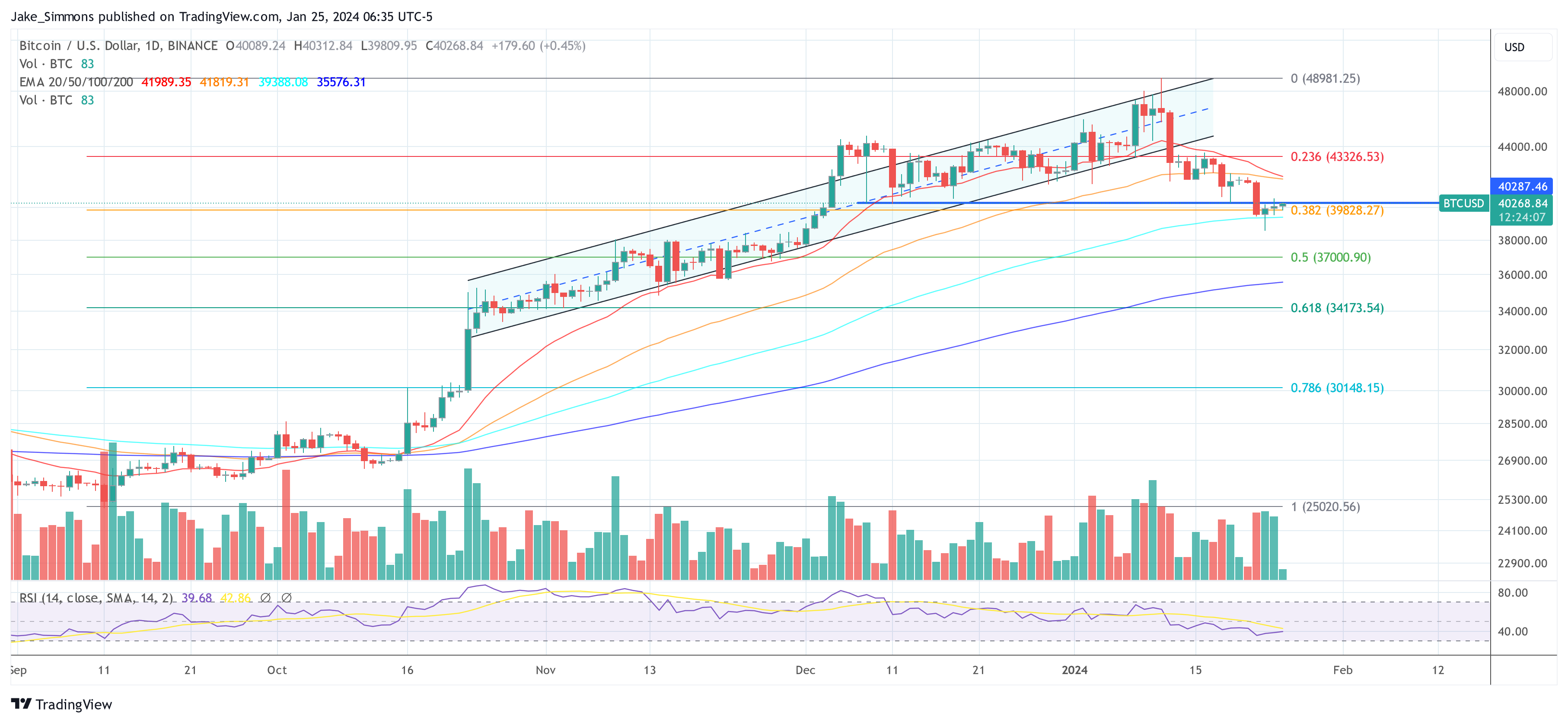Chinese investors remain resolute in their pursuit of Bitcoin despite the government’s ban since 2021. Bitcoin continues to attract significant investment from Chinese capital, Reuters reports. reports Today.
Mainland China is still buying Bitcoin
Dylan Run, a financial executive in Shanghai, epitomizes this trend. Concerned about China’s economic prospects and sluggish domestic stock market, Run ventured into Bitcoin in early 2023.
As detailed in the Reuters report, he employed a clever strategy, using bank cards issued by rural banks and keeping every transaction under 50,000 yuan ($6,978) to avoid regulatory scrutiny. According to him, “Bitcoin is a safe haven, just like gold.” Run has now allocated almost half of his investment portfolio to BTC, which has risen sharply and is outperforming the ailing Chinese stock market.
Remarkably, Run’s journey reflects a broader movement among Chinese investors who are actively seeking unconventional avenues to access Bitcoin. The Reuters report highlights that Chinese Bitcoin investors operate within a regulatory gray area, as cryptocurrency trading is officially banned in mainland China, and capital flows across borders are strictly controlled.
Despite these restrictions, Chinese investors continue to trade Bitcoin on offshore exchanges such as OKX and Binance, or through over-the-counter channels. Furthermore, as noted in the Reuters report, Chinese citizens have ingeniously used their $50,000 annual purchasing quota, which is typically reserved for foreign travel or education, to fund BTC accounts in Hong Kong.
This phenomenon is driven by a growing need for diversification amid economic uncertainties in China. One investor put this sentiment succinctly by stating, “Given the economic climate in China, exploring alternative investments such as cryptocurrencies has become a necessity.”
Bitcoin, along with other digital assets, has emerged as a haven for these investors as they navigate China’s complex economic landscape. Importantly, this trend extends beyond retail investors. Chinese financial institutions are also exploring opportunities within the cryptocurrency sector, as highlighted in the Reuters report.
An executive at a Hong Kong-based cryptocurrency exchange underscored the rationale, stating: “Faced with a sluggish stock market, weak demand for IPOs and downsizing from other companies, Chinese brokers need a compelling growth story for their shareholders and boards.”
Off-shore crypto exchanges facilitate trading
As the report notes, access to Bitcoin remains relatively accessible in mainland China. Off-shore crypto exchanges such as OKX and Binance continue to offer their services to Chinese investors, offering guidance on converting yuan into stablecoins through fintech platforms such as Ant Group’s Alipay and Tencent’s WeChat Pay.
Chainalysis, a cryptocurrency data platform, sheds light on the extent of this resilient activity. In contrast to the regulatory ban, the report reveals that crypto-related activities in China have increased dramatically.
China’s global ranking in terms of peer-to-peer trading volume shot up from 144th in 2022 to 13th in 2023. Amazingly, between July 2022 and June 2023, China’s crypto market recorded an estimated transaction volume of $86.4 billion , which easily surpassed Hong Kong’s $64 billion. in the field of crypto trading. Strikingly, the share of large retail transactions, ranging from $10,000 to $1 million, almost doubled the global average of 3.6%.
According to Chainalysis, the developments have “created speculation that the Chinese government may delve deeper into cryptocurrency and that Hong Kong could be a testing ground for these efforts.”
At the time of writing, BTC was trading at $40,268.

Featured image created with DALL·E, chart from TradingView.com
Disclaimer: The article is for educational purposes only. It does not represent NewsBTC’s views on buying, selling or holding investments and of course investing involves risks. You are advised to conduct your own research before making any investment decisions. Use the information on this website entirely at your own risk.

